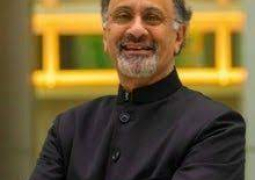
In an attempt to shed light on a lack of robust financial mechanisms and a series of dubious monetary transactions, he was intensely questioned by counsel and commissioners.
Mr Sallah was the finance director of the Mansakonko Area Council before he was appointed as acting CEO at the Basse Area Council, where he was later sacked.
His shocking testimony exposed a total lack of financial oversight mechanisms at the Mansakonko Area Council, just like other councils across the country.
The proceedings, led by Deputy Lead Counsel Patrick Gomez, delved into the 2019 audit report in an attempt to shed light on the startling revelations contained therein, which exposes a series of financial anomalies that overwhelmed the entire hall of the hotel.
Sallah, under rigorous cross-examination, confessed that the Mansakonko Area Council operated without a financial policy, leaving their operations unchecked and vulnerable.
The lack of a financial policy, he admitted, contributed to the council's inability to prepare a balance sheet.
“It was difficult for us to prepare a financial statement because the assets were not registered,” he said.
This massively obscured the true financial status of the institution, according to his testimony. Sallah also acknowledged damning discrepancies between ledger entries and cashbook records.
Commissioner Oreme E. Joiner at this point intervened. He pointed out a specific instance involving a trade license, where the recorded amounts differed significantly.
According to Commissioner Joiner, in this particular occasion, which involved a trade license, the cashbook record D201,785 while the record of the ledger D235,285.
“How can you explain the difference as a professional? Commissioner Joiner asked.
Pressed for an explanation, Sallah shockingly admitted: "I think we did the transactions and did not record them in the cashbooks."
Further compounding the financial anarchy, the audit report exposed payments made without proper documentation, as the council approved transactions without payment vouchers.
Sallah admitted to this procedural lapse, which he attributed to himself and the CEO's practice of hurriedly green-lighting transactions without payment vouchers from accounts clerks.
The deputy lead counsel sternly addressed Sallah for this breach of protocol. He emphasised that the correct procedure was for the CEO and finance director to await payment vouchers before approval: “The correct way was for you to get the payment vouchers first and then approve the transaction. You should not have done that. That is putting the cart before the horse."
Sallah’s attention was brought to the Financial Manual for local government administrations. Left with no other alternative, he admitted that their practices contradicted the prescribed procedures laid down by the manual.
In an attempt to justify their deviation from standard practice, he claimed that accounts clerks were not providing payment vouchers. However, he eventually placed the onus on himself for not directing them to do as such.
Mr Sallah also shockingly acknowledged that the council paid companies without payment vouchers, another revelation that stunned counsels, commissioners and attendees. Sallah merely termed this far-reaching systemic wrongdoing, which was one of many that plagued and continues to plague the Mansakonko Area Council, an “error” on their part.
Read Other Articles In Headlines



